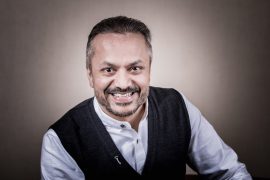Understanding Dubai’s technology-driven transformation
When it comes to fintech and digital transformation, it feels like Dubai is moving at the speed of some of the supercars found across its city.

Dubai shows that like a company, having a compelling vision and purpose from the very top is key to transformation
Earlier this year, I wrote about how Lithuania transformed itself into Europe’s largest fintech hub (by fintech licences issued) and became a launchpad for unicorns like Revolut. And as much as I am impressed with Lithuania, I find the progress and transformation of Dubai even more compelling.
There is much more I could cover, including how it is aiming for leadership in 4D logistics (underground, overground, on water, and by air). However, as someone with a career built on digital, what really excites me is digital transformation.
The transformation of a country
I recently spoke with Her Excellency Dr Moza Suwaidan, CEO of Digital Applications and Platforms for Digital Dubai, and she told me that the digital transformation of Dubai’s government services has been ongoing for 22 years.
During this period, they have gone through a number of transitions, starting from going online, to mobile enablement, and now most recently introducing AI. They recently launched a digital concierge for citizens – an AI-enabled app that gives access to over 200 government services across 45 departments. This was possible because the government operates under a “zero bureaucracy” policy and a shared vision. She highlighted three key areas of focus:
- Technology: While the aim is to be ‘digital first’, government services are not ‘digital only’, and all services can be accessed offline too.
- Regulation: This is designed to safeguard and support digitisation, not to hold it back.
- Culture: Investment is made in education for both government employees and citizens. For example, the city has a goal to have 25% of the population proficient in prompt engineering by 2027.
Having a digital infrastructure with a foundation based on digital identity seems to be consistent in the acceleration of growth not only in Dubai, but also in China, India, and Brazil. This is something the UK still lags in.
AI leadership

In discussion with His Excellency Omar Al Olama
Dubai was the first country globally to have a Minister for AI, highting the importance and potential the city sees in the technology to impact all sectors. His Excellency Omar Al Olama has been the UAE Minister of State for Artificial Intelligence, Digital Economy, and Remote Work Applications since 2017.
I asked him if he could see an impact to jobs because of AI, and he responded that while he believed there would be an impact to some jobs across all industries as a result of the rise of AI, the government has already designed and implemented a “three R’s” strategy to prepare for this:
- Reskill – for jobs that may be completely replaced by AI, the government will help reskill these people for other jobs.
- Retool – where jobs are significantly changed by AI, the government will help workers to be retooled to leverage AI, effectively enabling them to do more than before.
- Rehire – with a goal to become a leader in AI, new jobs will be created too.
Workers whose jobs are potentially completely replaced by AI and who are close to retirement age will also have the option to retire early.
Fintech mastery
I also met again with Mohammad Alblooshi, CEO of DIFC Innovation Hub, who told me their current site had been expanded to 300,000 square feet of office space and now was home to over 1,000 start-ups. The facility caters for very early-stage entrepreneurs all the way to scale-ups. Successful start-ups that have scaled from the ‘innovation hive’ have now moved out into their own premises. Over 700 fintech licences have been issued for companies working across banking, insurance, and brokerage. They have also created an AI campus and are on track to have over 500 companies there by 2025.
Destination Dubai?
The scale and speed at which Dubai is digitising and preparing for a future driven by technology is not only impressive, but I believe understated. It is something that can only truly be appreciated by seeing the city itself and talking to people who are making the change a reality.
Dubai shows that much like a company, having a compelling vision and purpose from the very top is key to transformation. The vision is backed by action to achieve ambitious goals like the one for prompt engineering. But most impressive of all is how Dubai is already preparing and supporting its people for a world that will inevitably be shaped by AI and technology.
This week, I’m just saying that as a career technologist, I’ve always dreamt of working in Silicon Valley, but that dream is now challenged by one to work in Dubai.
About the author
Dharmesh Mistry has been in banking for more than 30 years both in senior positions at Tier 1 banks and as a serial entrepreneur. He has been at the forefront of banking technology and innovation, from the very first internet and mobile banking apps to artificial intelligence (AI) and virtual reality (VR).
He has been on both sides of the fence and he’s not afraid to share his opinions. All opinions are his own – feel free to debate and comment below!
He founded proptech start-up AskHomey (sold to a private investor in spring 2023) and is an investor and mentor in proptech and fintech. He also co-hosts the Demystify Podcast.
Follow Dharmesh on X @dharmeshmistry and LinkedIn.
Read all his “I’m just saying” musings here.












































